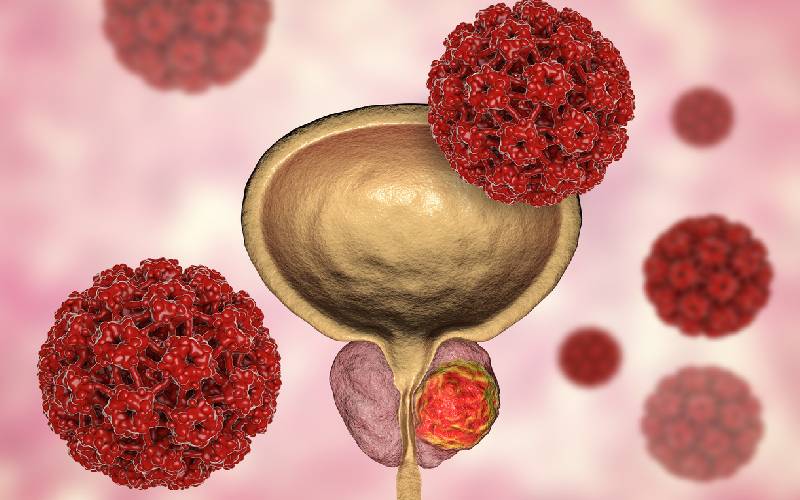
Is it true that the prostate changes after age 45?
Yes. Due to hormonal changes after 45-50 years of age, benign enlargement of prostate takes place which manifests as difficulty in urinating (voiding) and lower urinary tract symptoms. Some of them also develop cancer, which is mostly asymptomatic in the initial stage.
How does prostate cancer develop?
Prostate cancer is a slow-growing tumour. It starts as uncontrolled cell division to a small nodule over many years. It gradually spreads to other organs in the body.
How common is prostate cancer?
Prostate cancer is the second most common cancer in men; the fourth most common tumour diagnosed worldwide and the sixth leading cause of cancer deaths among men globally. 1 in 8 men (1 in 7 men of African descent) have a lifetime risk of developing prostate cancer. Risk of developing prostate cancer increases rapidly after age 50, exponentially with increasing age; 60 per cent of cases are found in men aged 65 years or more.
Is it true that Africans are more affected by prostate cancer than other races?
Yes. African men suffer from prostate cancer disproportionately more compared to men from other parts of the world. Africans are 79 per cent more likely to develop prostate cancer than Caucasian men, and 2.2 times more likely to die from it. Prostate cancer is among the most heritable of the major human cancers; It is estimated that more than half (57 per cent) of prostate cancer risk is due to genetic factors. Men with a history of prostate cancer in relatives (father, brother, son) have two-fold increased risk.
What are the earliest symptoms?
Most men with early stages of prostate cancer will be asymptomatic. This means that they don’t show symptoms. Some patients, however, will experience nonspecific lower urinary tract symptoms such as:
· Frequent urination
· Hesitant urination
· Burning urination
· Erectile dysfunction
· Bloodstained ejaculate
In advanced stages, patients may have:
· Blood tinged urine (haematuria)
· Severe obstructed urination (voiding)
· Retention of urine
· Ureter obstruction causing unstable kidney function
· Pain on the side (flank)
· Reduced urine output
· Uremic symptoms like nausea, vomiting, weakness and anaemia
· Back pain or stiffness in lower back, hips or upper thighs
· Pathological fractures, spinal cord compression and paralysis
As these symptoms can also occur in other diseases/disorders, thorough work-up determines the underlying cause and a test known as the Prostate Specific Antigen (PSA) test would rule out prostate cancer in such patients. Initial screening for prostate cancer consists of a rectal examination by a physician and a blood test for PSA.
How curable is prostate cancer?
The earlier the cancer is detected, the more likely it is for the patient to be cured. About 90 per cent of prostate cancers are detected early in localised stages. This has a high cure rate - nearly 100 per cent of men diagnosed at this stage will be disease-free after five years. Even for locally advanced cancer, a combination of radiation and hormone treatment gives good long-term results; about five disease-free in 80-90 per cent cases.
 The Standard Group Plc is a multi-media organization with investments in media
platforms spanning newspaper print
operations, television, radio broadcasting, digital and online services. The
Standard Group is recognized as a
leading multi-media house in Kenya with a key influence in matters of national
and international interest.
The Standard Group Plc is a multi-media organization with investments in media
platforms spanning newspaper print
operations, television, radio broadcasting, digital and online services. The
Standard Group is recognized as a
leading multi-media house in Kenya with a key influence in matters of national
and international interest.











